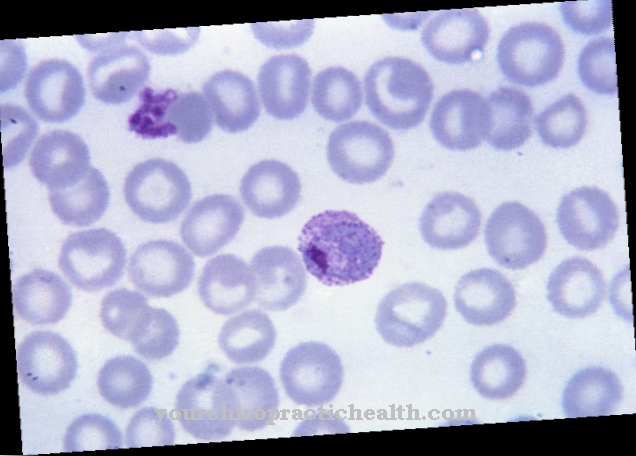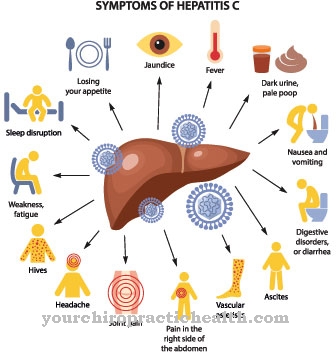Food chemists have found that the combination of 50 percent carbohydrates and 35 percent fat stimulates the desire for snacking and gluttony. Applied to chocolate, this could explain the fact that once a bar is opened it is often eaten to the end without a break. Certainly this is no proof of an unbridled lust for food. A few tips can help with excessive Desire for chocolate to curb the appetite.
Chocolate: the sweet temptation
On average, one hundred grams of milk chocolate consists of 55 grams of carbohydrates and around 32 grams of fat. The rest is protein, water, minerals and other ingredients. In this respect, chocolate corresponds to the aforementioned pattern.
However, an increased desire for chocolate can have many causes. On the one hand, habit. There is evidence that when hungry, the body craves what is often consumed in this situation. Hormone fluctuations in women are often associated with mood swings. With small Tips it is possible to reduce excessive craving for chocolate.
Serotonin has a mood-enhancing effect and chocolate stimulates serotonin production. With increasing stress, the desire for sweets increases in many people. The brain consumes more energy under stress, which explains the desire for sweets. Deficiency symptoms can also trigger cravings for chocolate and other sweets.
Chocolate is actually healthy. However, excessive consumption of chocolate can become problematic if its consequences around the stomach and hips can no longer be concealed. Chocolate is high in sugar and fat. Sugar drives up insulin levels. If there is insulin in the blood, fat is stored in the body as storage fat.
Just as quickly as the insulin level has risen, it slumps back down again. The body cries out for the next piece of chocolate and this cycle never stops. More and more fat accumulates. Eventually the pancreas fails and stops producing insulin. In addition to being overweight, there is now also diabetes.
7 tips to stop snacking
1. Make a conscious decision: Don't automatically reach for the next piece of chocolate, just pause and distract yourself. Taking a few steps, a conscious look out of the window can help to forget the original reflex. If it doesn't work, it helps to think and consider: Do I really need this now?
It can be helpful not to have chocolate within easy reach, i.e. not in your handbag or desk drawer. If access to the object of desire is associated with particular activities, it is easier to decide about the necessity.
2. Have no feelings of guilt: Anyone who has then chosen to "sin" should have no feelings of guilt. Better to accept your current weakness and do better next time.
3. Quality instead of quantity: there are big differences in quality when it comes to chocolate. So spend a little more money on less. Sugar comes first in cheap products or it contains concentrated butter instead of cocoa butter. Ingredients must be listed on the packaging in the order in which they are contained in the product.
Most of the ingredient that comes first is in it. Sugar is never the top priority in high-quality milk chocolate. If flavorings are mentioned, they come from a chemical factory. Concentrates or fruit powder are of natural origin, but can reduce the shelf life of chocolate.
4. Set special opportunities: habits can be changed - even if it is often very difficult. Chocolate could be used as a special reward. Whenever a task has been mastered well or a goal has been achieved, there is a piece of it.
5. Avoid seduction: if you always have chocolate close at hand, you can easily be seduced. It is better to only buy good chocolate on special occasions and not keep it in stock all the time.
6. Dates, figs & Co. - healthy alternatives: Sweet fruits contain sugar but not fat at the same time. Since the physical cause of the desire for chocolate is a low blood sugar level, a sweet fruit or dried fruit is a healthier substitute.
7. Drink water: Drinking a large glass of water slowly often works wonders. It distracts, fills the stomach and calms hunger.
Is there a sugar addiction behind it?
While sugar was one of the luxury goods a hundred and fifty years ago, today every German consumes an average of 35 kilograms a year. Two thirds are processed industrially in beverages, baked goods, spreads, ready meals and dairy products. Scholars disagree about whether sugar is addictive.
It is undisputed that excessive sugar consumption is responsible for many health problems. The aim should therefore be to conquer the appetite for chocolate and sweets and to avoid sugar traps. If you eat your fill of wholesome foods three times a day and drink at least two liters of water, you don't need chocolate in between.
Compulsive renunciation is not a solution
Compulsive behavior is dangerous and comparable to an addiction. When the body is hungry for happiness hormones, exercise is both an alternative and a distraction. Sport and exercise, properly dosed, make you happy in a healthy way and release happiness hormones.

























.jpg)


